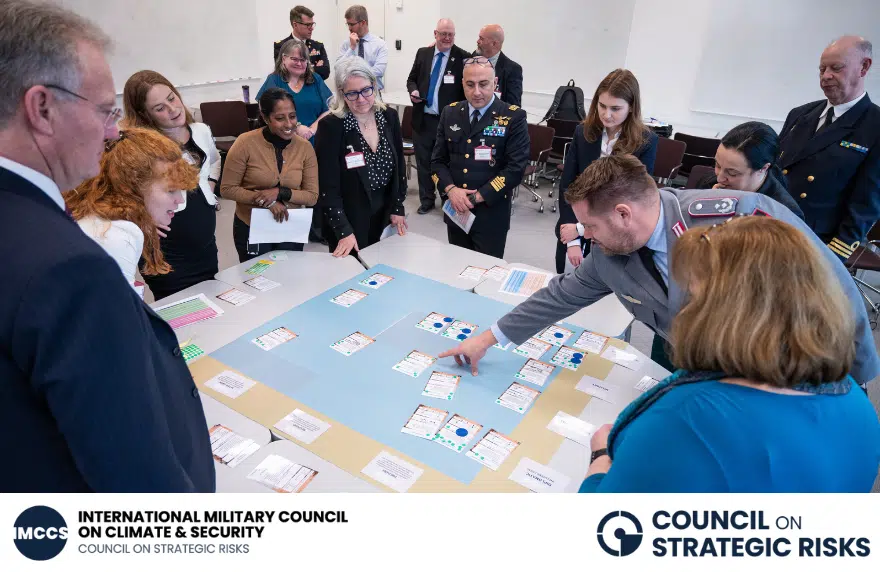Research
There is no doubt that climate change is severely affecting the entire planet. Anthropogenic carbon emissions catalyze the pace of melting ice caps, soaring temperatures, and decreasing rainfall patterns, creating concerning scenarios for the future. Areas vulnerable to such conditions might suffer from larger-scale impacts on their security, for instance, disrupting vital systems, exacerbating existing tensions, destabilizing politics, creating migrations, and ultimately wars. Risks are plenty, and climate action is imperative.
This snapshot by HCSS Assistant Analyst Ricardo Pereira Teixeira and Michel Rademaker addresses serious gaming as a critical tool for undertaking climate initiatives and reports on the output from the NATO Crisis Management and Disaster Response (CMDR) Centre of Excellence course on Climate Security in Sofia, Bulgaria.
By employing HCSS’ tabletop strategic game, twenty participants discussed, compared, and selected the best practices to prevent and respond to a severe and long-term drought scenario affecting the ecosystem and populations living off the Tigris-Euphrates River Basin. Building from the conclusions reached at the event, this snapshot holds that serious gaming constitutes a crucial first step in gearing efforts toward climate action and harmonizing internal organizational processes. By engaging in such a capability analysis within a determined (fictitious) scenario, the dynamic allows critical actors to engage in relevant discussion, open communication lines, and ground policy goals with an organization’s available resources.
As a result, participants achieve an enhanced situational awareness, supporting better preparedness, developing resilient capacities, and, most importantly, translating policy goals into substantial climate mitigation/adaptation outcomes.
Authors: Ricardo Pereira Teixeira and Michel Rademaker
Find out more about the HCSS Strategic Capability Gaming






